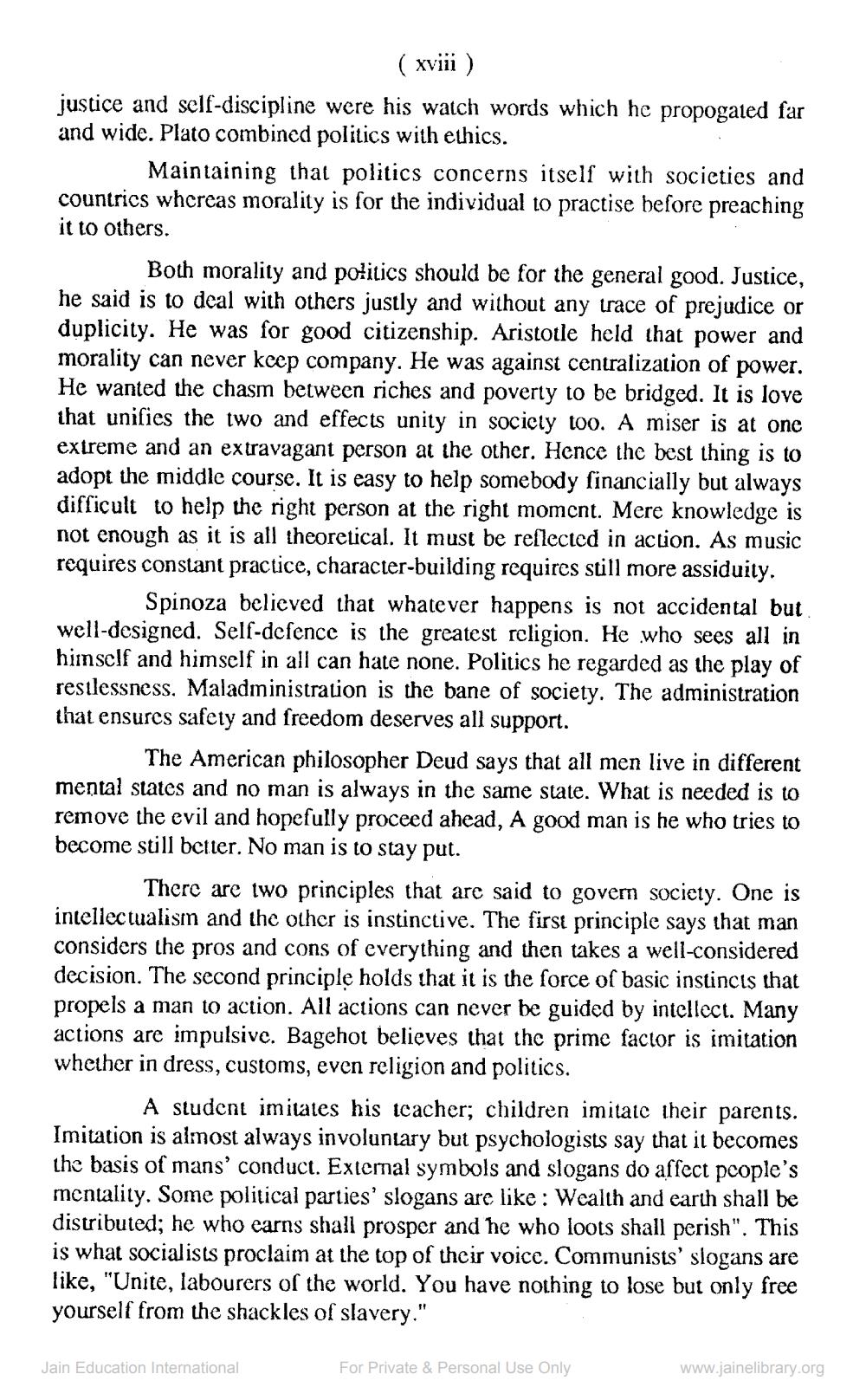________________
( xvii ) justice and self-discipline were his watch words which hc propogated far and wide. Plato combined politics with ethics.
Maintaining that politics concerns itself with societies and countrics whereas morality is for the individual to practise before preaching it to others.
Both morality and politics should be for the general good. Justice, he said is to deal with others justly and without any trace of prejudice or duplicity. He was for good citizenship. Aristotle held that power and morality can never keep company. He was against centralization of power. He wanted the chasm between riches and poverty to be bridged. It is love that unifies the two and effects unity in society too. A miser is at one extreme and an extravagant person at the other. Hence the best thing is to adopt the middle course. It is easy to help somebody financially but always difficult to help the right person at the right moment. Mere knowledge is not enough as it is all theoretical. It must be reflected in action. As music requires constant practice, character-building requires still more assiduity.
Spinoza believed that whatever happens is not accidental but well-designed. Self-defence is the greatest religion. He who sees all in himself and himself in all can hate none. Politics he regarded as the play of restlessness. Maladministration is the bane of society. The administration that ensures safety and freedom deserves all support.
The American philosopher Deud says that all men live in different mental states and no man is always in the same state. What is needed is to remove the evil and hopefully proceed ahead, A good man is he who tries to become still better. No man is to stay put.
There are two principles that are said to govern society. One is intellectualism and the other is instinctive. The first principle says that man considers the pros and cons of everything and then takes a well-considered decision. The second principle holds that it is the force of basic instincts that propels a man to action. All actions can never be guided by intellect. Many actions are impulsive. Bagehot believes that the prime factor is imitation whether in dress, customs, even religion and politics.
A student imitates his tcacher; children imitate their parents. Imitation is almost always involuntary but psychologists say that it becomes the basis of mans' conduct. External symbols and slogans do affect people's mentality. Some political parties' slogans are like : Wealth and earth shall be distributed; he who earns shall prosper and he who loots shall perish". This is what socialists proclaim at the top of their voice. Communists' slogans are like, "Unite, labourers of the world. You have nothing to lose but only free yourself from the shackles of slavery."
Jain Education International
For Private & Personal Use Only
www.jainelibrary.org




